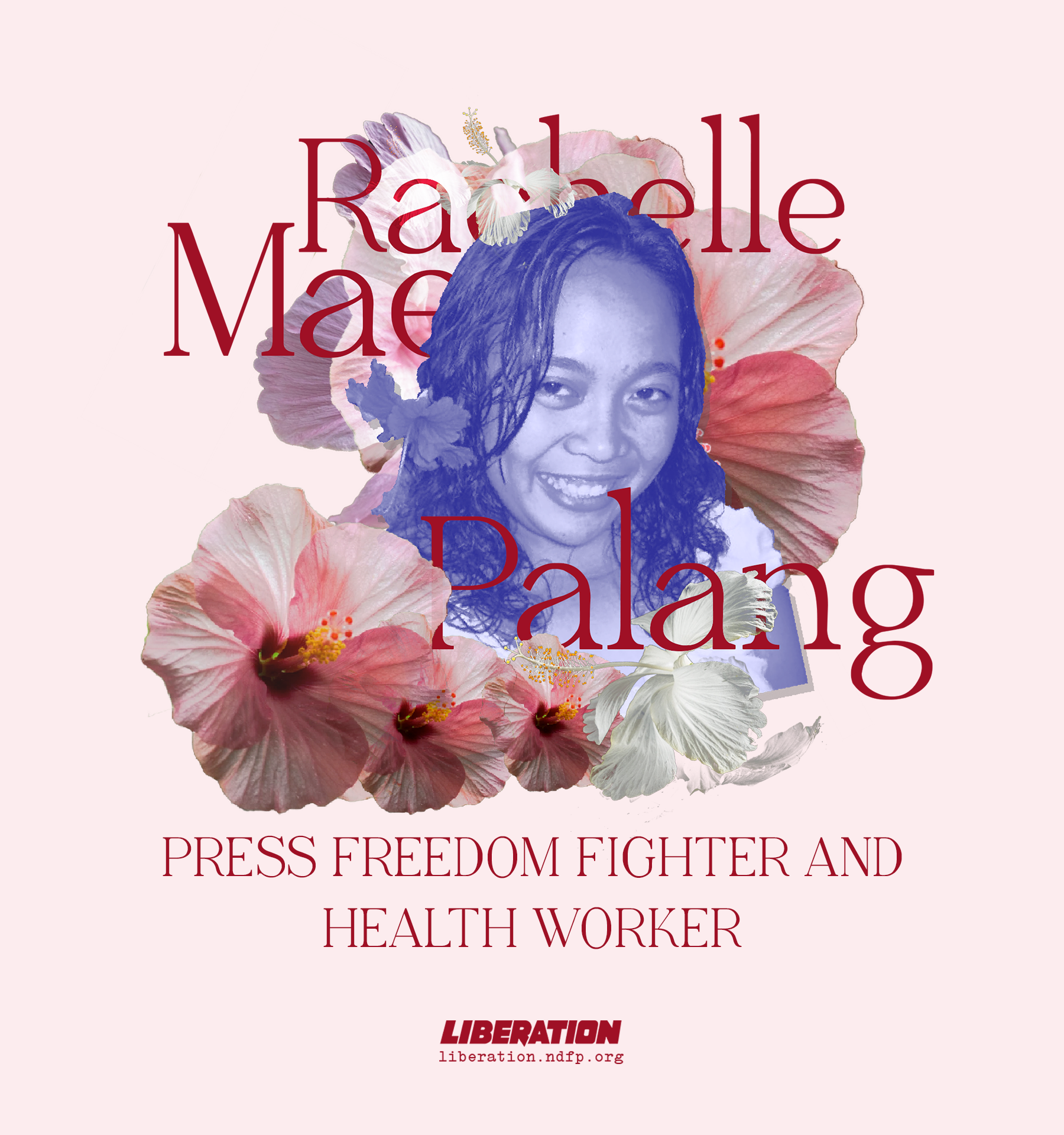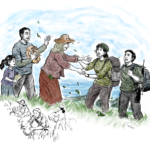Rachelle Mae Palang, Press Freedom Fighter and Health Worker

If Rachelle Mae Palang’s name is familiar, it is because the Southeast Negros command of the New People’s Army (NPA) was named after her. Rachelle Mae died at age 22, on September 18, 2008, in the hands of the fascist troops while on a medical mission. Naming the Southeast Negros Command of the NPA after her memorialized her life—a patriotic youth, another best of the best who chose to serve the poorest of the poor.
She was an outstanding nursing student, a leader, and a campus journalist. These gave her a keen grasp of issues and awakened her to the ills of society. As an avid advocate of press freedom, she assiduously fought against violations of the rights of people to information and free expression as well as campus repression.
After obtaining her degree in nursing and passing the licensure exam, she immediately volunteered to go to the hinterlands of Negros to serve the peasant communities where health care system has long been neglected by the government. She dreamt to be a doctor after passing the national medical admission test so she could better serve the downtrodden and disadvantaged. However, that dream perished with her untimely death.
Rachelle as press freedom fighter
Mae Mae, as she was fondly called by her closest friends at the Veluz College in Cebu City, was endeared to many for her bubbly, zany demeanor as well as her generosity to help. She stood out as a conscientious and indefatigable student leader. She fought not only for press freedom but also for the students’ democratic rights and welfare.
While Editor-in-Chief of the Vital Signs, the official publication of Veluz College, she was elected Vice President for the Visayas of the College Editors Guild of the Philippines (CEGP) and served for three years. During her term, she helped reopen campus publications and establish student papers in colleges and universities that had none.
Having campus papers is a democratic right of the students. Mae Mae was aware that campus press is an important platform for students to express their ideas, develop critical thinking skills, and in presenting the people’s point of view on various issues and concerns.
Even after her term with the CEGP, Mae Mae continued to contribute to the organization by documenting cases of press freedom violations in Visayas.
Healthcare for the people
After passing the nurses board, Rachelle opted to go to the countryside to serve the most oppressed and neglected sector of the country—the peasants and farm workers. She refused to go abroad, the goal of many of those who chose the nursing profession. During her brief but meaningful medical mission, she discovered the integrative work of the people’s army among the peasantry. The red army—while persevering to satisfy the basic demand of the poor peasants and farm workers for their rights to the land they till, achieving minimum and maximum gains—also provided health care for the masses through education, planting and production of herbal medicines, improvised medical kits, and other alternative treatment.
The martyrdom
Barely had Ka Hannah finished her medical mission when a composite unit of the 79th Infantry Battalion and elements of the Citizens Armed Forces Geographical Unit (CAFGU) chanced upon them at the border of Dauin and Zamboanguita Villages, in Negros Oriental. Ka Hannah and her companions where on a break from a meeting. That was September 2008 when Ka Hannah was killed along with Federico “Ka Val” Villalongha and Gerry “Ka Regan” Cabungcag. The Mt. Talinis Front Command of the NPA belied the claim of the Philippine Army that there was an armed encounter.
Unarmed, Ka Hannah was shot point blank, her face hardly recognizable, while signs of torture were evident all over her body, a violation of the rules of engagement under the International Humanitarian Law.
Ka Hannah’s martyrdom, as well as those of the other patriotic youth before her who had aspired to change the world, is a constant inspiration. Their bold and selfless sacrifice is a challenge to the youth to take the noble path to national and social liberation. (Patrocinio del Rosario) ###



